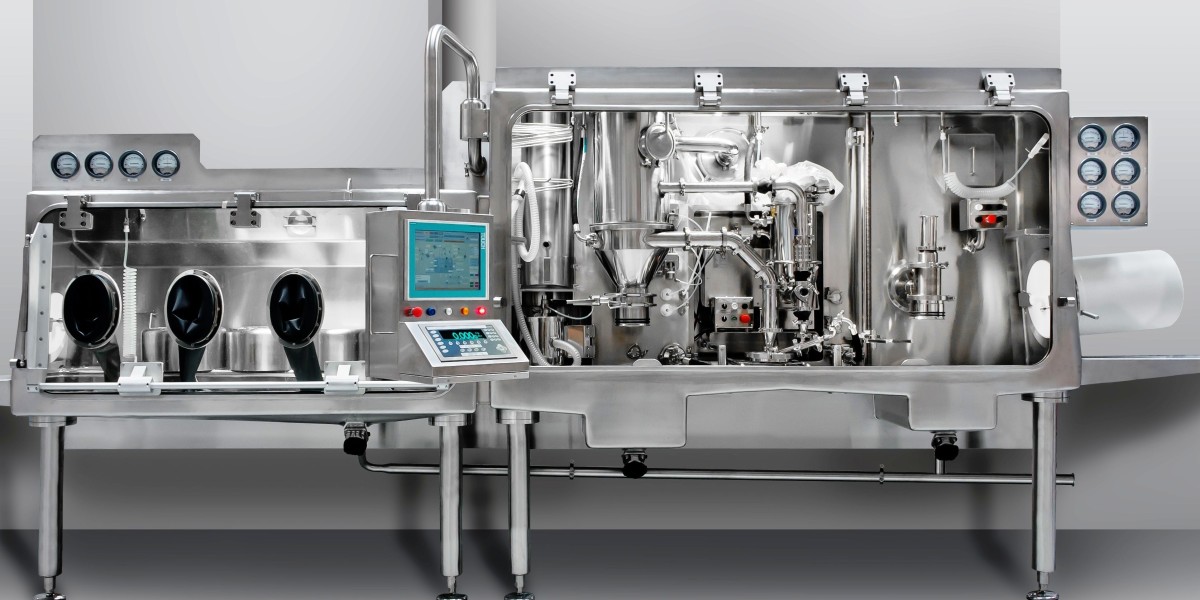Pharmaceutical Isolators: Safeguarding Aseptic Processing and Beyond
Maintaining sterility is paramount in the pharmaceutical industry, especially during aseptic processing. Pharmaceutical isolators offer a powerful solution, creating a controlled environment for handling sterile products and protecting both personnel and the product from contamination. Let's delve into the benefits, considerations, and innovations driving the evolution of isolators.
1. How Do Isolators Ensure Sterility During Aseptic Filling?
Aseptic filling involves transferring sterile product into sterile containers in a contamination-free environment. Pharmaceutical isolators offer several advantages over traditional cleanrooms:
- Physical Barrier: Isolators function as sealed enclosures with glove ports for operator access. This physical barrier minimizes the risk of airborne or direct contact contamination from personnel.
- Air Filtration: Isolators utilize high-efficiency particulate air (HEPA) filters, ensuring a controlled atmosphere with minimal airborne particles.
- Negative or Positive Pressure: Depending on the application, isolators can maintain either negative or positive pressure compared to the surrounding environment. Negative pressure safeguards personnel by containing potential hazardous materials within the isolator. Positive pressure protects the product from external contaminants.
Leading companies like Syntegon Technology (Germany) and Getinge AB (Sweden) are at the forefront of isolator technology, offering advanced systems like the Syntegon Isolator and the Getinge Isolator ATx with integrated decontamination systems and biocompatible materials for optimal sterility assurance.
2. Cost Comparison: Pharmaceutical Isolator vs Cleanroom
While isolators offer superior sterility control, they typically involve a higher initial investment compared to cleanrooms. However, factors like space requirements, operational efficiency, and long-term maintenance costs need to be considered.
- Cleanroom Costs: Cleanrooms require a larger footprint and ongoing maintenance for air quality control.
- Isolator Costs: Isolators have a smaller footprint but may require specialized training and maintenance for decontamination protocols.
NuAire Inc (US) and Schematic Engineering Industries (India) are known for offering cost-effective isolator solutions like the NuAire NuFlow NU-PAX cGMP Isolator and the Schematic cGMP Pharmaceutical Isolator, catering to diverse budgetary needs.
3. Types of Pharmaceutical Isolators for Hazardous Drug Handling
Pharmaceutical isolators play a crucial role in safely handling potent and cytotoxic drugs. Different types of isolators cater to specific needs:
- RABS (Restricted Access Barrier Systems): These isolator systems provide a physical barrier and air filtration for basic aseptic processing.
- Closed Isolators: These fully enclosed systems offer the highest level of containment, with negative pressure and advanced decontamination protocols to ensure operator and environmental safety.
Companies like MBraun GMBH (Germany) and Fedegari Autoclavi S.p.A (Italy) specialize in isolators for hazardous materials. Their offerings like the MBraun Glovebox Systems and the Fedegari Isolator FH Series incorporate advanced containment features and operator protection for safe handling of potent drugs.
4. Benefits of Using Isolators in Pharmaceutical Research and Development
Beyond aseptic processing, pharmaceutical isolators offer valuable benefits in research and development (R&D) labs:
- Safe Handling of Research Materials: Isolators provide a controlled environment for handling sensitive research materials, minimizing contamination risks.
- Sterile Compounding: R&D labs can utilize isolators for sterile compounding of research formulations.
- Containment of Potent Compounds: Isolators offer a safe solution for working with potential allergens or cytotoxic compounds during research.
Companies like Cytiva (US) () and Hosokawa Micron B.V (Netherlands) () are leading the way in isolator design for R&D applications. Their offerings, such as the Cytiva AseptiCube and the Hosokawa Micron Micromaster isolators, are compact and adaptable, featuring integrated biocontainment features and ergonomic designs for efficient and safe handling of research materials.
For more information visit at MarketResearchFuture
Other Trending Reports
Pharmaceutical Contract Manufacturing Market








